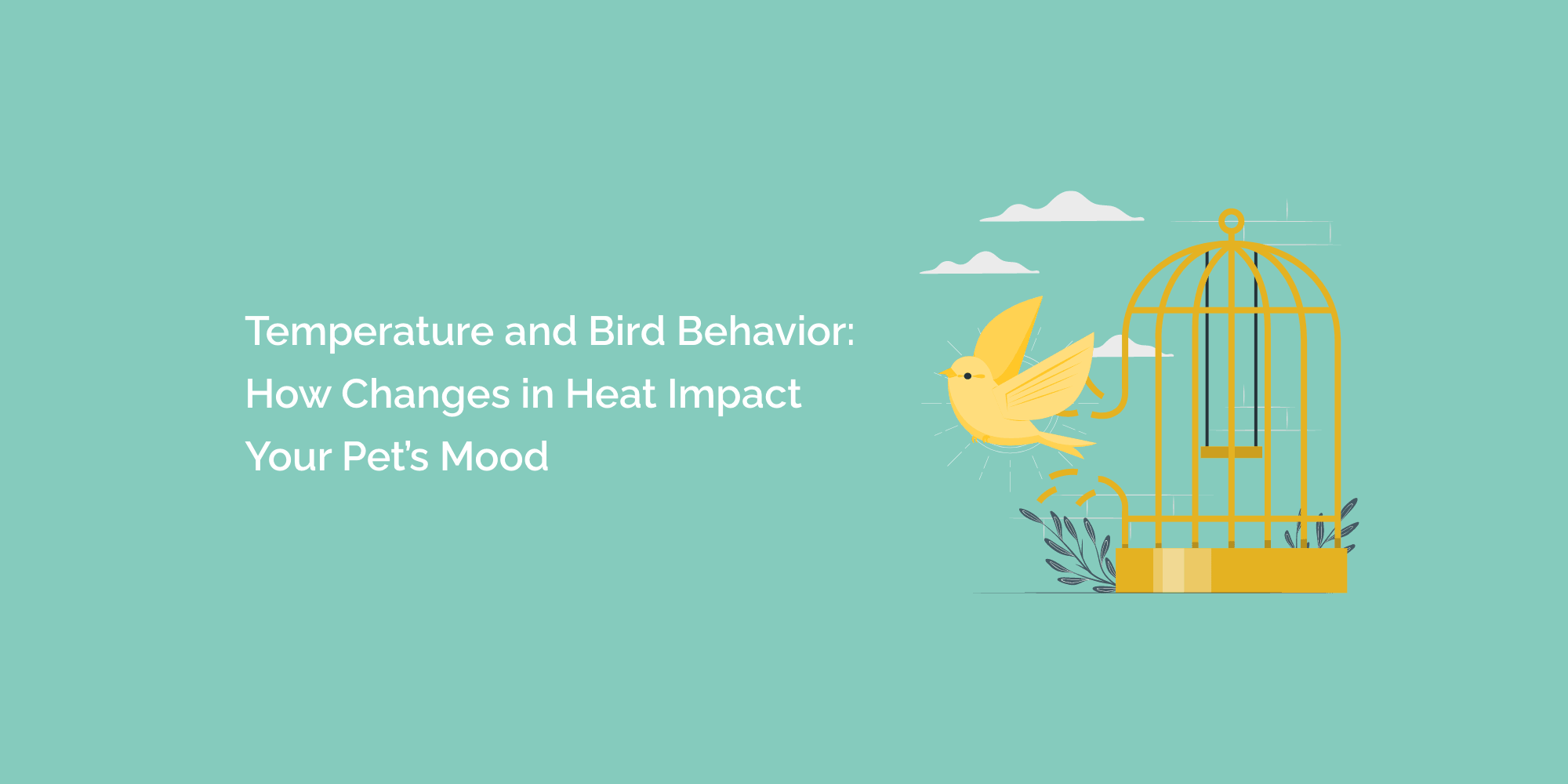As bird owners, we cherish the unique personalities and playful behaviors of our feathered friends. Understanding the factors that influence bird behavior is essential for providing them with a nurturing and comfortable environment. One significant factor that can significantly impact a bird's mood is temperature. Birds are highly sensitive to changes in heat, and fluctuations in temperature can affect their behavior, well-being, and overall happiness. In this comprehensive blog, we will explore the relationship between temperature and bird behavior, how heat impacts their mood, and the best practices for maintaining a comfortable and enjoyable environment for our avian companions.
Birds and Their Unique Sensitivity to Temperature:
Birds have a higher metabolic rate compared to mammals, which allows them to generate more body heat. However, this also means they are more sensitive to temperature changes. Unlike mammals, birds cannot sweat or pant to regulate their body temperature, making them vulnerable to extreme heat or cold. Understanding this unique sensitivity is crucial for recognizing how temperature fluctuations can affect their behavior.
-
Heat Stress and Discomfort: Birds are prone to heat stress, especially in hot and humid climates. High temperatures can cause them to feel uncomfortable and agitated.
-
Cold Stress and Inactivity: Cold temperatures can also impact bird behavior, leading to decreased activity and lethargy. Birds may fluff up their feathers to conserve body heat and minimize movement.
- Seasonal Changes: Birds may experience behavioral changes during seasonal transitions, as they adapt to fluctuations in temperature and daylight.
How Heat Affects Bird Behavior:
-
Agitation and Restlessness: During hot weather, birds may display signs of agitation and restlessness. They may vocalize more, flap their wings, or perch on the highest point in their cage to find cooler air.
-
Excessive Panting: Panting is a common sign of heat stress in birds. When they are overheated, they may open their beaks and rapidly breathe to cool down.
-
Reduced Appetite: Extreme heat can suppress a bird's appetite, leading to decreased food intake.
-
Decreased Physical Activity: In very hot weather, birds may become less active and spend more time perched or resting to conserve energy.
-
Feather Plucking: In some cases, birds may resort to feather plucking as a stress response to uncomfortable temperatures.
-
Increased Bathing Behavior: Birds may bathe more frequently in hot weather to cool down and regulate their body temperature.
-
Reduced Vocalization: Cold temperatures can cause birds to become quieter and less vocal.
- Huddling and Feather Puffing: Birds may huddle together and puff up their feathers to trap warmth and stay comfortable in cold weather.
The Role of Temperature Monitoring:
Temperature monitoring plays a crucial role in understanding the impact of heat on bird behavior. By regularly monitoring the bird's living environment, you can identify temperature fluctuations that may be affecting their mood and well-being.
-
Using Digital Thermometers: Invest in reliable digital thermometers with remote probes or smart monitoring systems to track real-time temperature changes.
-
Proper Probe Placement: Position the temperature probe near the bird's perch level to obtain accurate readings of their immediate environment.
- Setting Temperature Alerts: Configure temperature monitoring systems to send alerts when the temperature exceeds or falls below the recommended range. This ensures prompt attention and intervention.
Maintaining a Comfortable Environment:
To ensure a comfortable environment for your bird and promote positive behavior, follow these best practices:
-
Temperature Control: Keep the bird's living space within the ideal temperature range. For most birds, the optimal range is between 65°F to 80°F (18°C to 27°C). Avoid placing the cage in areas with direct sunlight, drafts, or heating/cooling vents.
-
Proper Ventilation: Good air circulation is essential to prevent heat buildup in the bird's living space. Ensure proper ventilation without exposing the bird to direct drafts.
-
Seasonal Adjustments: Make seasonal adjustments to the bird's environment, such as using heaters during colder months and fans or misters during hot weather.
-
Provide Shade: For outdoor aviaries, provide ample shade to protect the bird from direct sunlight during the hottest parts of the day.
-
Regular Baths: Offer your bird regular opportunities for bathing, especially during warmer weather, to help them cool down.
-
Thermal Perches: Consider using thermal perches during colder months to provide additional warmth for your bird.
- Observing Behavioral Cues: Pay close attention to your bird's behavior and body language to identify signs of discomfort or stress related to temperature changes.
Seeking Veterinary Attention:
If you notice persistent signs of heat or cold stress, such as excessive panting, lethargy, or changes in eating habits, it is essential to seek veterinary attention immediately. Timely intervention can prevent the progression of illness and ensure your bird's well-being.
Conclusion:
Understanding the relationship between temperature and bird behavior is crucial for providing a nurturing environment for our feathered companions. Birds' unique sensitivity to temperature makes them vulnerable to heat and cold stress, which can significantly impact their mood and well-being. By implementing temperature monitoring, maintaining a comfortable environment, and observing behavioral cues, bird owners can ensure their pets thrive in a safe and enjoyable living space. Regular temperature checks, timely interventions, and proactive care are essential for supporting positive bird behavior and fostering a strong bond between owners and their avian friends.








